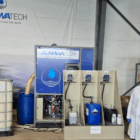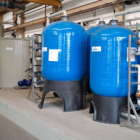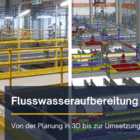Rake
A screen is a mechanical separating element used in industrial process water and wastewater technology to remove coarse solids from liquid streams. As the first cleaning stage in sewage treatment plants and water treatment plants, the screen protects downstream processes and systems from clogging, damage and wear. Its function is essential







